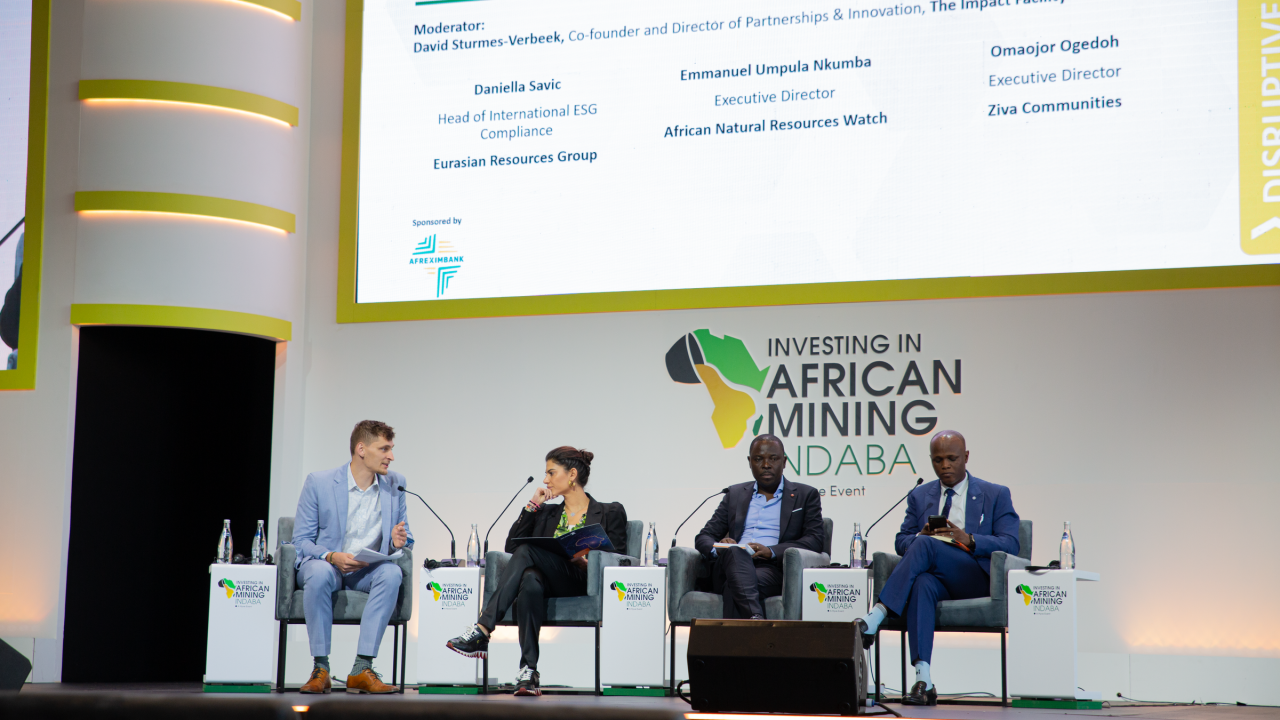Mining Other

Future-proofing mining: A multi-disciplinary approach

A high-level, all-women panel discussion at the Investing in African Mining Indaba 2025 event which took place in February this year discussed the theme of the event: “Future-Proofing African Mining, Today!” on day one. They came to the overriding consensus that future-proofing African mining is a complex, interdisciplinary process that requires engagement at the intersection of several sectors – government, investment, community, talent and markets.
Marna Cloete, president Ivanhoe Mines moderated a high-level, all-women panel discussion at the Investing in African Mining Indaba 2025 on “Future-Proofing African Mining, Today”. All images supplied in African Mining Indaba 2025
Session moderator Marna Cloete, president of Ivanhoe Mines, led the conversation by a panel featuring senior executives, officials and board members from leading organisations in the mining industry and downstream businesses representing different perspectives.
Cloete noted that Africa finds itself at a crossroads saying, “Our continent has a massive mineral endowment, in huge demand for the energy transition and for technology. But the question is whether we can maximise this opportunity.”
Caroline Donally, managing partner of Sprott Streaming and Royalty, said that the key to unlocking the full potential of this opportunity is being able to give investors regulatory certainty. “Investors want to be sure that if they invest today, the same legislation will be in place tomorrow, with the same environmental, royalties and human-capital requirements. Investors don’t want a free ride. They just want the certainty that things won’t change dramatically.”
At the same time, there was a massive beneficiation opportunity on the continent, noted Martina Biene, chair and MD of Volkswagen Group Africa. “There is huge demand to purchase more from Africa – not only in the form of raw commodities, but in the form of processed material to supply downstream markets,” she said. “It offers a world of possibilities for Africa to add local value, but it also offers environmental benefits. If we can create end product close to source, it minimises carbon emissions.”
Ntokozo Nzimande, deputy director-general of South Africa’s Department of Mineral Resources and Energy, echoed this view, saying that, from a government perspective, beneficiation is a powerful tool for creating jobs. “Processing and manufacturing is where jobs are created,” said Nzimande, emphasising the value of cross-functional partnerships. “Collaboration between governments, investors, mining companies and communities is critical to future-proofing mining.”
Nzimande also commended the Investing in African Mining Indaba event for bringing traditional leaders on board as full partners to the mining sector.
Sameera Mohamed, HR director for Microsoft Africa, agreed with the value of this partnership approach, but emphasised the need for relevant, future-focused training. “Interconnectedness between stakeholders helps to create jobs, but skilling is what creates the capability to do those jobs,” she said. “The human spirit has a constant need to keep progressing. Communities, technology companies, governments and investors all have a part to play in building the workforce of the future.”
Zenzi Awases, president of the Association of Women in Mining in Africa (AWIMA) said this kind of collaboration was most effective when all stakeholders worked together to invest in communities.
“Mining is most effective when you invest in communities, support artisanal and small-scale mining, and empower youth and women,” said Awases. “Women know their communities and can provide quick answers to anyone who wants to understand them better.”
“Successful mining is sustainable mining,” she said. “That is only possible when mining involves all role players.”
Investing in African Mining 2025 took place in Cape Town.












